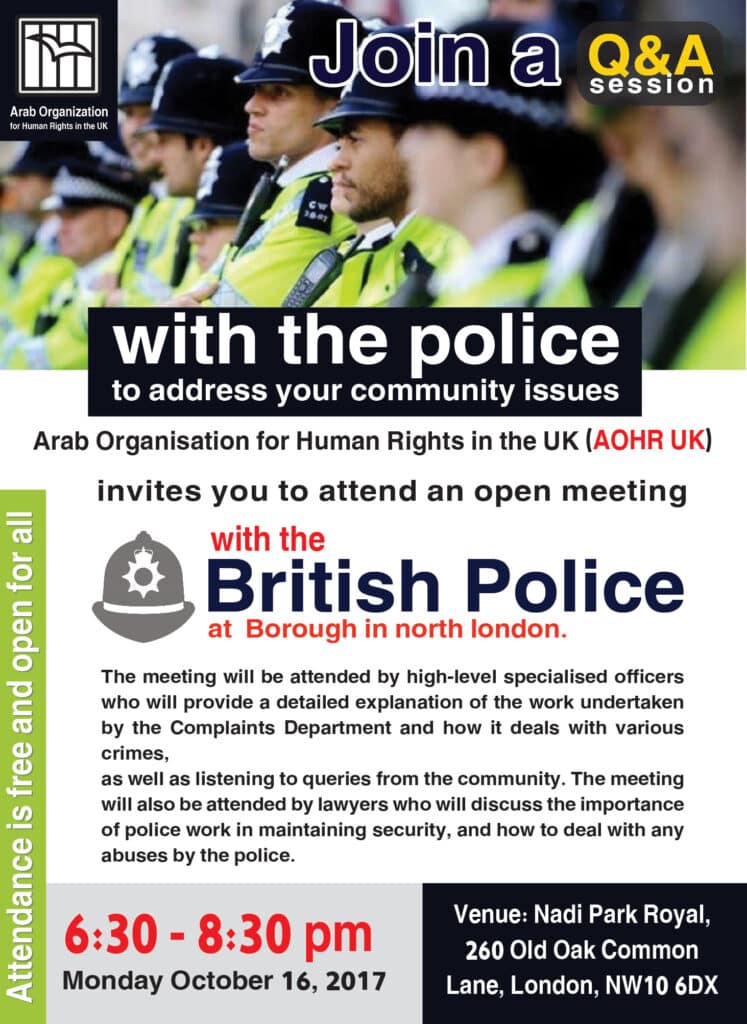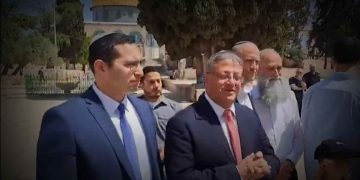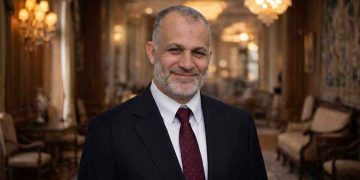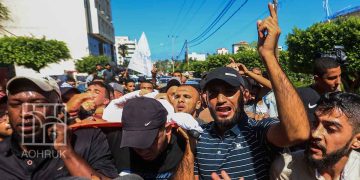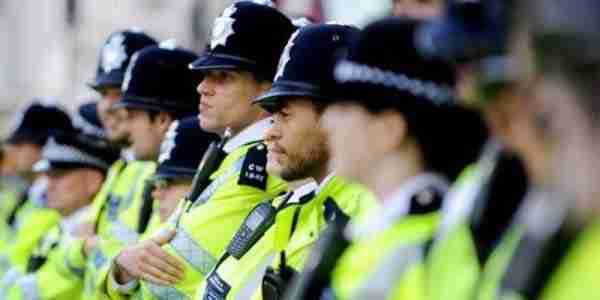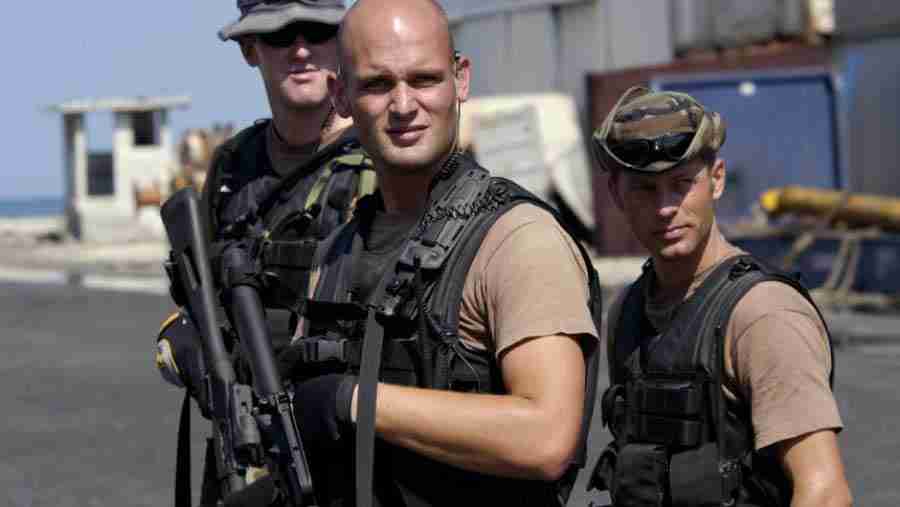“If communities don’t talk to us, we’re deaf and blind” say London Police as they met with community members
Arab Organisation for Human Rights in the UK (AOHR UK) invited the local police force in north London to attend an open meeting with members and leaders of the community to address their issues and queries on October 16, 2017.
AOHR UK called for this meeting after the organisation’s Director, Mohammed Jamil, met with the head of the complaints department in the British police force after the Finsbury Park attack. Chairing the meeting was barrister Rhys Davies.
Rhys Davies’ – barrister at law chair of the meeting opened the session by sharing the age-old proverb of how it takes a village to raise a child – and that while by no means does it belittle the role parents play, it serves as an emphasis this day and age to the vital and enhanced role communities play to support justice and a well-functioning society. Regarding community work, Davies said “It is vital that the Met Police’s role in fostering good community relations is successful.” He stressed the ability of community policing depended on positive relations with society at large.
Attending Commander for North London, David Musker, then took the stage. The senior police officer started by telling the audience that the ethos the police live by is that, “The police are the public and the public are the police.” Musker mentioned terrorism, emphasising the role of the police in serving the communities: “Communities fight terrorism, communities give us information, then we take it seriously.” He ended by saying: “The only way the police work, is if communities talk to us. If communities don’t talk to us, we’re deaf, dumb and blind.”
Next to speak was Superintendent Mike Hill, responsible for the Response Unit in Camden and Islington, with a focus on public order matters. Hill mentioned how the police “get it right day after day after day, but there are occasions when we get it wrong.” He listed all the roles and responsibilities that police officers deal with in the community.
Last to speak before the floor was opened to the audience, was leading international human rights barrister Toby Cadman. Cadman is also a domestic and international prosecutor and defender, involved in many high-profile cases nationally and internationally. Cadman was asked to discuss counter-terrorism and the impact of counter-terrorism on the human rights act and how it breeds into community relations. Cadman mentioned the importance of the work undertaken by the police and that “working with communities is particularly important so that the community can have greater access to the police and understand what they are trying to do.”
“It is important when we think of what the police have to deal with now in having to develop effective counter-terrorism and counter-extremism policies that they work very closely with the communities; that they are held accountable because we have the Human Rights Act: there are very stringent standards that the police and all aspects of the criminal justice system have to comply with.”
Regarding racial profiling and the stop-and-search procedures, Cadman stressed the importance of the communities seeking opportunities to speak with police officers to understand their policies. If a person is taken in for questioning, there are human rights standards which must be complied with, such as adequate legal representation, Cadman told the officers and the audience. “It is important that individuals understand what their rights are, both by talking to lawyers and by talking to senior police officers, so communities can understand.”
Upon opening the floor for questions, a common concern flagged by numerous members of the public, was the rising levels of hate crimes, racism and Islamophobia being witnessed, and their frustration in failing to see anything being done to prevent this rise. Attending Commander David Musker assured the audience however, that all hate crimes, no matter how small, should be dealt with and that the police force holds a zero-tolerance approach towards hate crimes. “If the matter has not been dealt with, follow us up” advises the commander.
Cadman added, “Sometimes, it helps to get a lawyer and to give them a call. If you feel your complaint has not received the necessary response, get a lawyer on the phone to follow it up.”
Diversity is an issue which police officers and members of the public alike can agree on as a stepping stone towards greater cooperation. A more representative police force is likely to encourage more youth in marginalised communities to feel safer and appear more approachable. “Unfortunately, the police force is not changing quick enough at the pace London is,” Musker acknowledges, “However, we can see in the latest intake in Brent for instance, we have the most diverse officers ever.”
Despite the cuts faced by the British police service, they have taken a conscious decision to invest more than ever in community officers, knowing that there is more to cooperation, but rather the critical role it plays in our society.
Open discussions such as the one held last evening are pivotal in ensuring members of the public feel reassured and listened to, and is a step towards making sure their concerns are tackled.
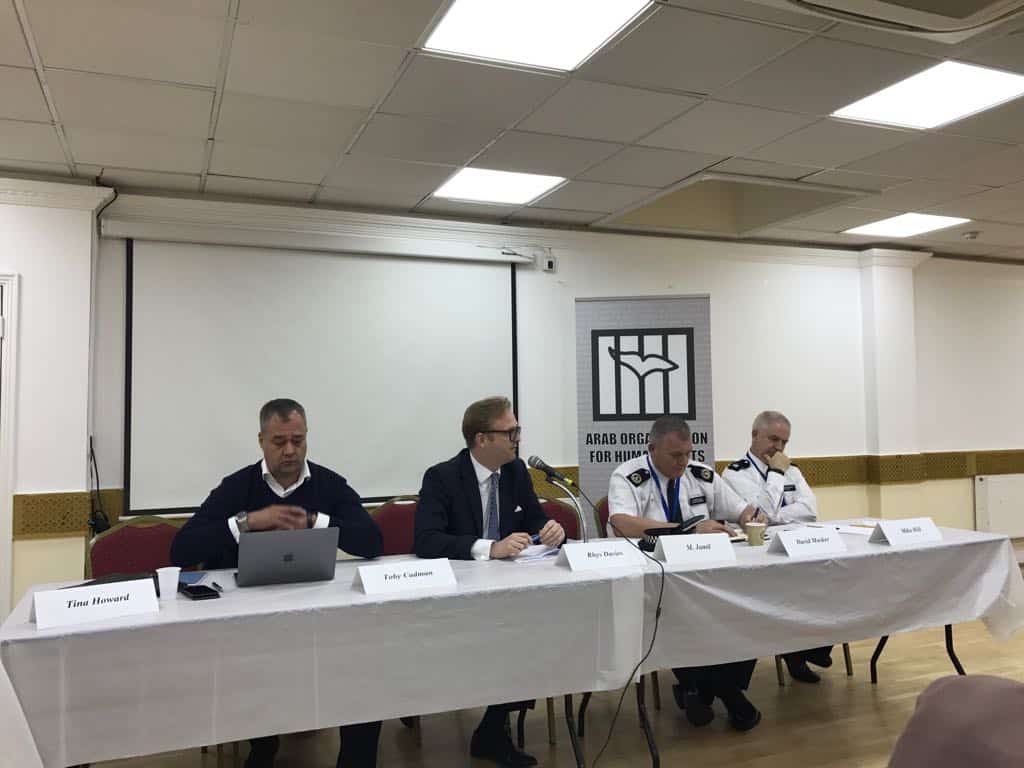
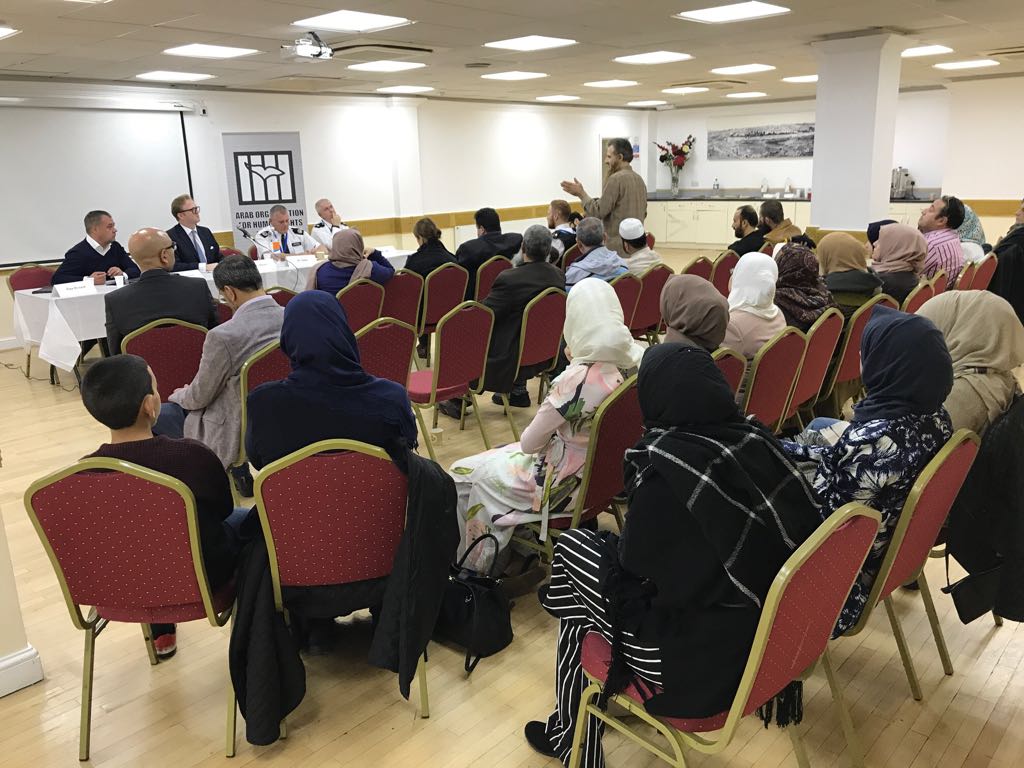
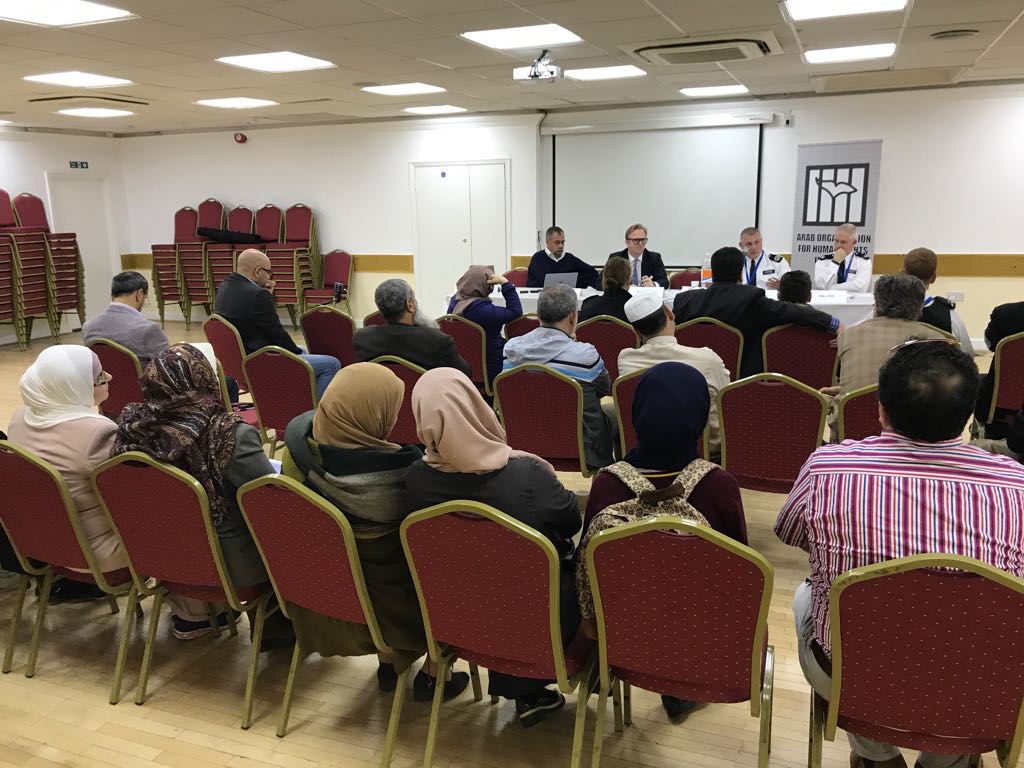
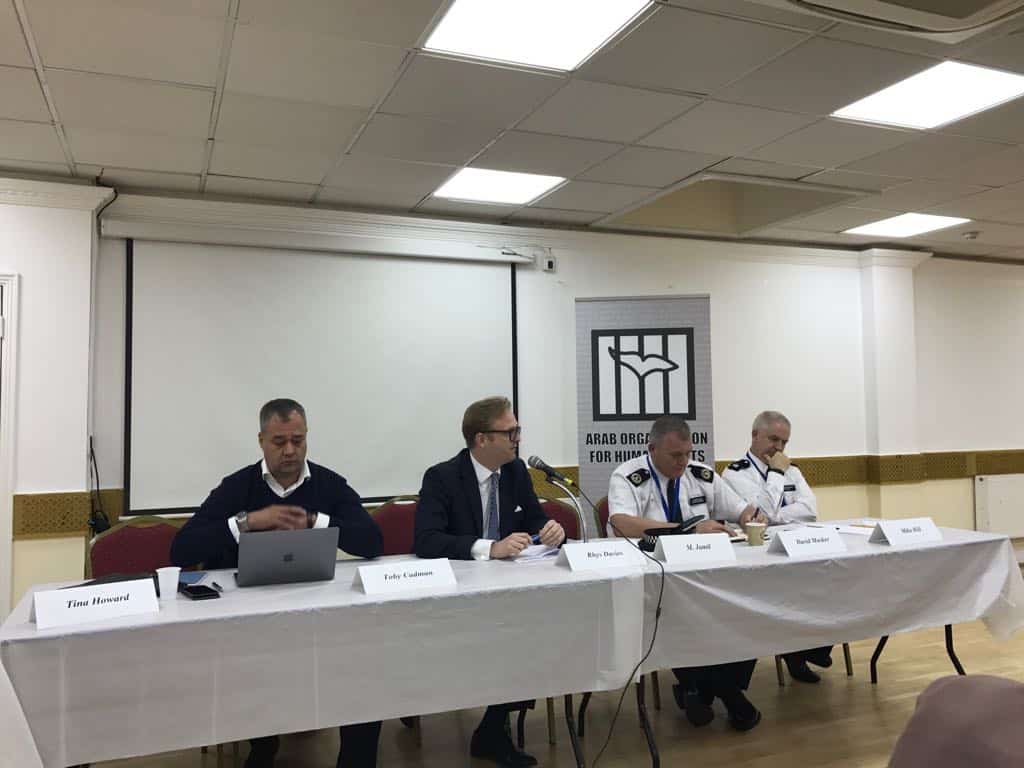
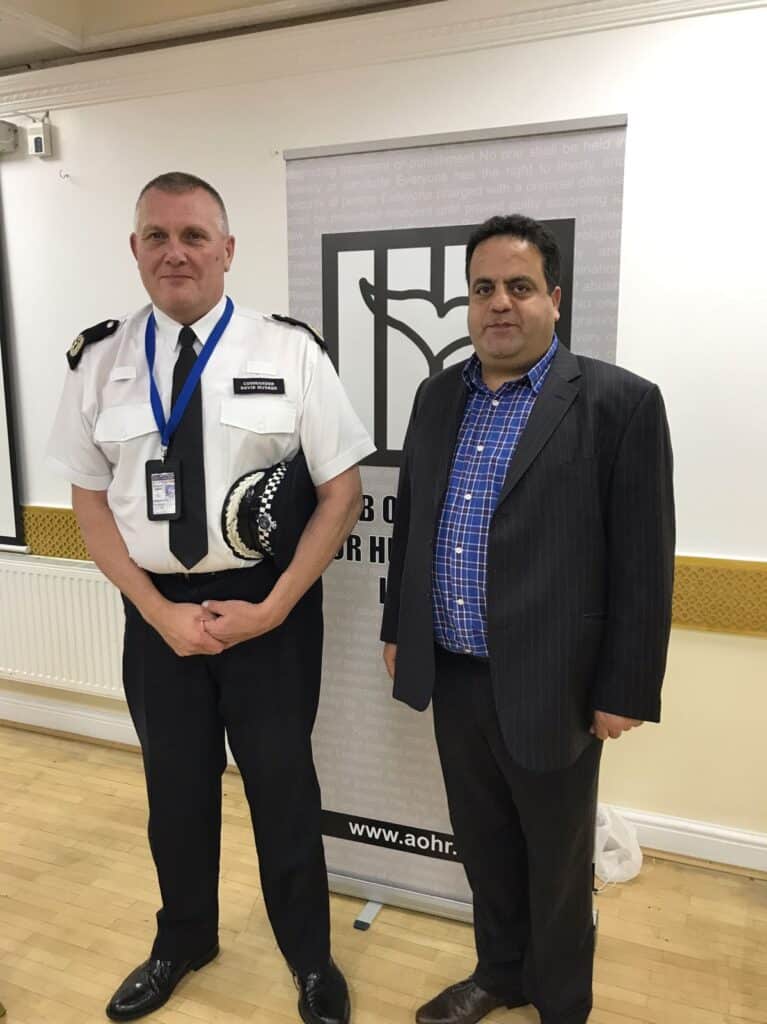
Join a Q&A session with the police to address your community issues
Session Announcement
Join a Q&A session with the police to address your community issues
Arab Organisation for Human Rights in the UK (AOHR UK) invites you to attend an open meeting with the British Police at Borough in north london. The meeting will be attended by high-level specialised officers who will provide a detailed explanation of the work undertaken by the Complaints Department and how it deals with various crimes, as well as listening to queries from the community. The meeting will also be attended by lawyers who will discuss the importance of police work in maintaining security, and how to deal with any abuses by the police.
Time: 6:30 – 8:30 pm, Monday October 16, 2017
Venue: Nadi Park Royal, 260 Old Oak Common Lane, London, NW10 6DX
Attendance is free and open for all
To attend, please register here:
http://bit.ly/2xhXOsd
